SUMMARY
This is AI generated summarization, which may have errors. For context, always refer to the full article.
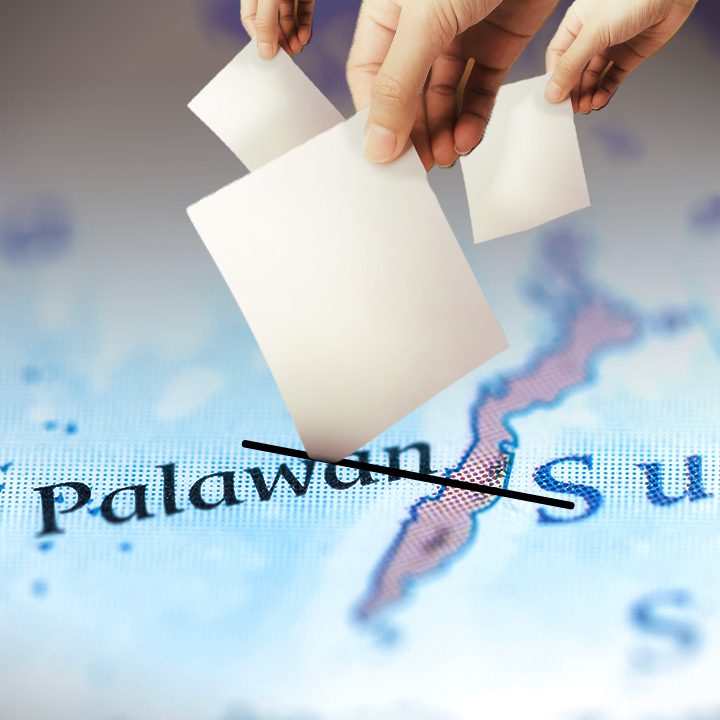
“Fear-mongers who say people are afraid to vote because of COVID-19 – not true!”
Commission on Elections Spokesperson James Jimenez wasn’t making big claims when he said this in an April 13 podcast. He was talking of something real, and proven, that was the “generally successful” conduct of the Palawan plebiscite in March.
The first electoral exercise held in the Philippines during the coronavirus pandemic, it had a 60% voter turnout, meaning nearly 300,000 registered voters participated.
It gave election workers, watchdogs, and observers an idea of the unique challenges that await the country in 2022 presidential and local elections.
Picture of a plebiscite
For the plebiscite, new variables that were not present in past elections were introduced, like requiring voters to fill out health declaration forms and subjecting them to standard sanitation procedures.
Comelec set up isolation polling places (IPP), where voters with above-average body temperatures were transferred so they could cast their ballots.
“This meant that COVID-19 symptoms won’t hinder someone from voting,” said communications officer Jenica Mendez of the Legal Network for Truthful Elections (LENTE), an election watchdog which stayed in Palawan for a month for the plebiscite.
In the classrooms that served as polling precincts, voting booths with aerosol barriers were installed between rows of chairs to minimize the risks of virus transmission.
LENTE expressed appreciation for the expanded participation by municipal and city health officers. “The involvement of barangay health workers and the municipal health office covered from triaging at the entrance of the voting centers to manning the IPPs as part of the [plebiscite committee],” the group said in a statement on April 26.
Local election officer Shiela Fetisanan-Sison noted that COVID-19 cases in Palawan were low during the period of the plebiscite, so fears against COVID-19 were very minimal.
“In 2020, no teacher wanted to serve because of the pandemic. But in March 2021, there were little fears regarding COVID-19,” Fetisanan-Sison said in Filipino on April 23, referring to the time the plebiscite was postponed last year due to lockdown restrictions in place.
Rappler spoke to three election officers in Palawan, as well as multiple poll watchdogs, who drew from the plebiscite experience to get a sense of how the Philippines can better prepare for next year’s national and local elections.
1. Comelec must find an effective way to prevent overcrowding.
Long lines were a common sight in past elections, but the threat of the virus underscores the need to prevent overcrowding.
Sheila Guno, election officer in the coastal town of Araceli, suggested removing the health declaration form requirement for voters, saying it may be redundant.
“The purpose of a health declaration form was for contact tracing, but it really created a crowd in the entrance. We had a list of voters already anyway,” Guno said in Filipino. She and other election officers discussed this during a post-plebiscite assessment.
2. The setup and design of polling places may have to be reconfigured.
Enclosed voting booths may have worked in Palawan because there were few voters per precinct, and voters had to spend a short time inside them, just voting “yes” or “no.”
“On a regular election day, that design might not last an entire day…. That design is enclosed; airflow or ventilation is needed,” LENTE executive director Ona Caritos said in a mix of English and Filipino.
Comelec’s Jimenez said the number of voting booths in a classroom will depend on the number of people assigned to cast their ballots in that voting precinct.
“Our precinct sizes during election time are 800 to 1,000 [people]. We’re looking to cut down that number in lieu of the pandemic, but that’s the number that will determine how many voting booths will be placed in one classroom,” Jimenez said in the podcast.
Comelec has not ruled out utilizing open air spaces as voting areas, but acknowledged there are logistical problems to it.
“There’s a shortage of places with huge open spaces like gyms, basketball courts…. So we really have to empty the classrooms even with the booths, if those are the only ones available,” Jimenez added.
3. Consistent compliance with health protocols is a must.
Sison said her poll workers in El Nido were constantly reminded to disinfect chairs, pens, and other surfaces that were usually touched by voters.
LENTE, however, observed the practice of disinfection, particularly of ballpens used, was not consistent across voting centers in the province. In some areas, there was a shortage of gloves required to be given to voters.
Jimenez said Comelec may include disinfection instructions as part of its voter education campaign.
“In the future, part of the [voter] education is that the voter will have to wipe down surfaces before using it. Maybe put a spray bottle there or just, do the work of keeping each other safe,” he noted in a mix of English and Filipino.
4. Everyone involved must be ready for more preparations and expenses than before.
The Parish Pastoral Council for Responsible Voting (PPCRV), which manned voter assistance desks in some areas during the plebiscite, said extra caution was applied for their volunteers.
“PPCRV ensured that we have our own way of contact tracing, that all our volunteers’ names and addresses were listed, so we’ll be there to support them,” PPCRV communications director Angela Antonio told Rappler on April 12.
She noted that their expenses for the 2022 polls would be heavy on COVID-19 care packages for their volunteers.
“In the past, we were just accounting for t-shirts, IDs, and lanyards to our PPCRV volunteers, but in our tally now there’s a column for face masks, face shields, and personal alcohol bottles,” Antonio added.
Phoebe Narrazid, election officer in the southern Palawan town of Bataraza, said more poll workers than usual will be needed in 2022. The additional COVID-19 protocols during the plebiscite prompted the need for additional manpower.
Prior to the plebiscite, restrictions on mass gatherings already complicated her efforts to brief over 1,000 election personnel in her area of responsibility. Virtual briefings were not possible due to poor internet connection in the town, which is situated over 1,000 kilometers southwest of Manila, the Philippine capital.
“We relied on briefings, but we could not accommodate all of them in one gathering. We divided the 1,000 personnel into five days. If there is no COVID-19, we can brief them all at once,” she said in Filipino.
5. Some voters may have to transfer their registration in case of sudden travel restrictions on election day.
Guno noted that some voters registered in Araceli but working outside the province may have been discouraged from returning home and participating in the plebiscite due to the strict travel guidelines at the time.
“Especially those working in Manila may have decided not to go home because of required swab tests and quarantine protocols,” she said in Filipino.
Jimenez however said Guno’s anecdote does not change the fact that overall voter turnout during the plebiscite was 20 percentage points higher than expected.
He, however, acknowledged the displacements caused by the pandemic, especially for voters unable to return to their provinces due travel difficulties.
“We are encouraging people to transfer their registration record if migration or travel is an issue. If it will be difficult for them to go from one place to another [to vote], we encourage them to register where they are during the lockdown,” Jimenez said in Filipino.
6. News media has to fill an information gap.
The March 13 vote in Palawan took place with the notable absence of ABS-CBN, which ceased operations in 2020 after Congress denied it a new franchise.
Sison said she didn’t personally feel the impact of ABS-CBN’s absence, but noted that more voters relied on radio stations for information on the plebiscite. “Different radio stations booked me for an interview almost every day. Our main office also had press conferences or information campaigns,” she said in Filipino.
But, for LENTE’s Caritos, ABS-CBN’s absence left a void in information dissemination: “There was no other TV station in Palawan, so there were almost no local sources of information. Comelec’s voter education campaign focused on the procedural aspect of the plebiscite. They forgot to zero in on the positive and negative impacts of the vote.”
Caritos also noted that the fact remains a significant part of the voters’ population don’t have access to the internet.
The absence of ABS-CBN’s network is expected to be felt in other provinces. “It’s not just Palawan. [Based on] storms that hit the Bicol region [in 2020], we could see that there is a very clear information gap,” said journalism professor Danilo Arao, convenor of election watchdog Kontra Daya.
Elections are everybody’s business
The Comelec and watchdogs are already working to address the gaps created by the health crisis.
“There has to be a way to process [things] more efficiently, but learning from the experience of Palawan, it is doable,” Jimenez said.
LENTE has a good reminder, however: the public and people’s organizations shouldn’t look at the polls as just Comelec’s responsibility.
“Everyone should be involved – political parties, candidates, private organizations, and individuals to ensure a successful 2022 elections,” the watchdog said. – Rappler.com
Add a comment
How does this make you feel?
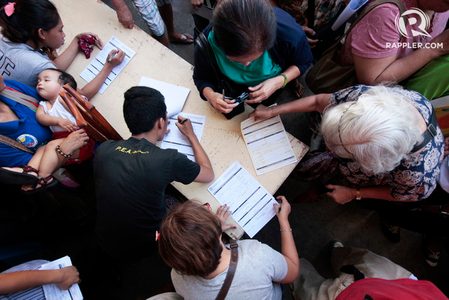


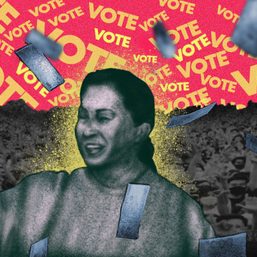
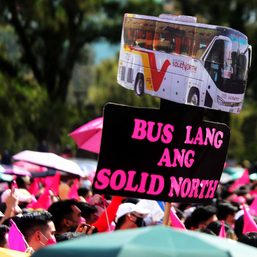
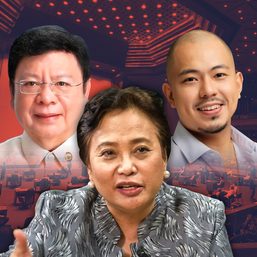


![[New School] Tama na kayo](https://www.rappler.com/tachyon/2024/02/new-school-tama-na-kayo-feb-6-2024.jpg?resize=257%2C257&crop=290px%2C0px%2C720px%2C720px)
![[Only IN Hollywood] After a thousand cuts, and so it begins for Ramona Diaz and Maria Ressa](https://www.rappler.com/tachyon/2024/02/Leni-18.jpg?resize=257%2C257&crop=262px%2C0px%2C720px%2C720px)
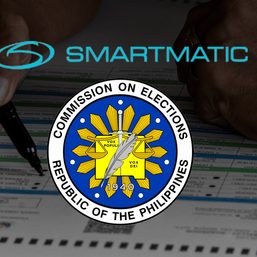


![[Time Trowel] Evolution and the sneakiness of COVID](https://www.rappler.com/tachyon/2024/02/tl-evolution-covid.jpg?resize=257%2C257&crop=455px%2C0px%2C1080px%2C1080px)


There are no comments yet. Add your comment to start the conversation.